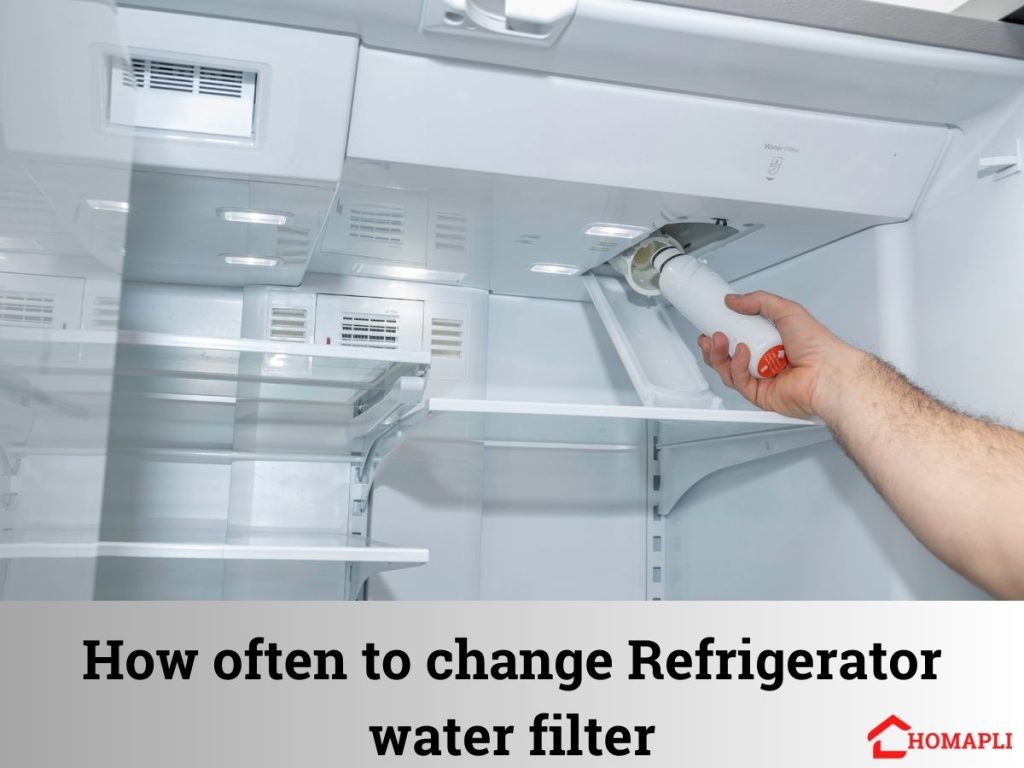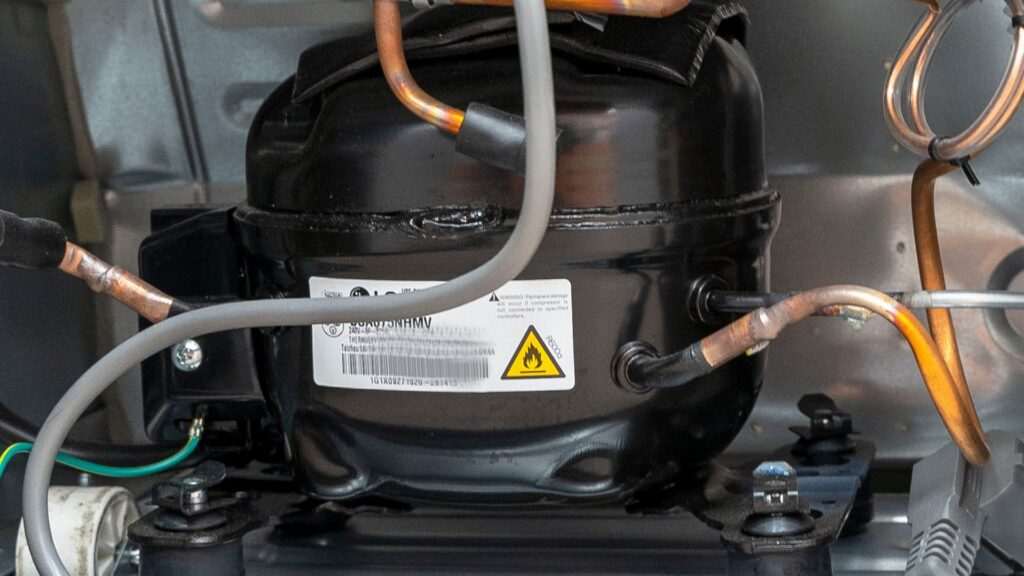How often to change Refrigerator water filter? The answer may surprise you. Depending on the make and model of your fridge, the water filter might need to be replaced every six months or even more often than that. It’s important to keep up with changing the filter, as a clogged filter can decrease your fridge’s efficiency and lead to poor-tasting water. So how do you know when it’s time to change your filter? Read on for tips. In this blog post, we will discuss how do you know when it’s time to change your filter and why it is important to do so.
What is a Refrigerator Water Filter?
Before we dive into how often to change a refrigerator water filter, let’s first understand what it is. A refrigerator water filter is a mechanism that helps purify the water that enters your fridge from the main water supply. These filters are designed to remove impurities, such as chlorine, sediment, and other particles, from your drinking water.
The Importance of Regularly Changing Your Refrigerator Water Filter
Apart from ensuring good water quality, changing your refrigerator water filter on a regular basis can also prevent harmful bacteria growth inside your appliance. Additionally, replacing the filter improves the efficiency of your refrigerator, which translates to lower energy bills. Failing to change the filter regularly can lead to excess energy consumption and expensive repairs in the long run.
When should you replace the water filter in your refrigerator?
The recommended time frame for replacing your refrigerator water filter varies, but on average, it is recommended to change the filter every six months or after the filtration of 300 gallons of water. However, the lifespan of the filter may vary depending on the usage and the quality of the water supply in your area. The best way to determine the right time to replace your refrigerator water filter is to consult the user manual or get in touch with the manufacturer.
How to Know When to Replace Your Refrigerator’s Water Filter
One way to tell if it’s time to replace or change the refrigerator water filter is by watching out for signs of water quality deterioration. Some signs of an old filter include funny-tasting water, cloudiness, and low water pressure. If you notice that the water quality has changed, it is advisable to replace your filter immediately.
Installation tips for refrigerator water filters
To ensure that your water filter system is working correctly, you’ll need to follow some essential installation tips. In this ultimate guide, we’ll be discussing some of the critical things to keep in mind when installing your refrigerator water filter.

1. Read the instruction manual before installing
The first step in installing a refrigerator water filter is to ensure that you read the instruction manual provided with the filter. The manual will provide step-by-step instructions on how to install the filter properly. It will also provide you with all the necessary information regarding the different models of filters and how to install them in your refrigerator. Failure to read the manual can result in the wrong installation and can lead to leaks or poor filtration.
2. Shut off the water supply valve
Before installing the filter, it’s essential to shut off the water supply valve that supplies water to your refrigerator. This will ensure that water does not spill out while you’re installing the filter. You may find the valve under your sink or behind the refrigerator. If you’re unable to find the valve, you may need to consult your refrigerator’s user manual or contact a professional for assistance.
3. Use the correct filter
Using the correct filter is crucial to ensuring efficient and effective filtration. Different filters are designed for different refrigerator models, and using the wrong filter can lead to poor filtration or leakage. Make sure to check your refrigerator model number before purchasing a filter. You can find the model number on the label located inside your refrigerator.
4. Properly align the filter
Proper alignment of the filter is crucial to ensure that it works effectively and efficiently. Ensure that the filter is seated correctly and fits snugly. The filter should only be twisted in the direction indicated by the arrow. Failure to align the filter properly can lead to leaks and poor filtration. Therefore, make sure to follow the manufacturer’s instructions for proper alignment.
5. Test your water after installation
After installing the filter, it’s recommended that you test your water to ensure that the filter is working correctly. You can perform a taste test to check if the water has any unusual taste or odor. You can also use a water testing kit, which can help you test the water for any contaminants.
The Different Types of Filters Available On The Market
Filters are an important component in your refrigerator that helps remove impurities from your water and ice before you consume it. With advancements in technology, you’ll find many different types of filters available on the market today. It’s important to understand how each filter works to choose the right one that is compatible with your refrigerator. Here, we take a closer look at the different types of filters you can choose from.
1. Carbon Filters:
Carbon filters are the most common type of filters found in refrigerators. They work by using activated carbon that removes impurities and odors from your water and ice. Carbon filters also help to improve the taste of your water which is a big plus. Carbon filters are generally disposable and need to be replaced after 6 months, depending on usage. These types of filters are compatible with most refrigerators.
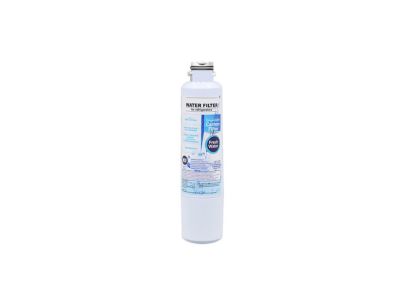
2. Reverse Osmosis Filters:
Reverse Osmosis (RO) filters are advanced filters that remove impurities by forcing water through a special membrane. RO filters are capable of removing up to 99% of all impurities found in water, including arsenic, lead, and mercury. However, they may not be compatible with all refrigerators as they can be bulky and require a separate installation procedure.
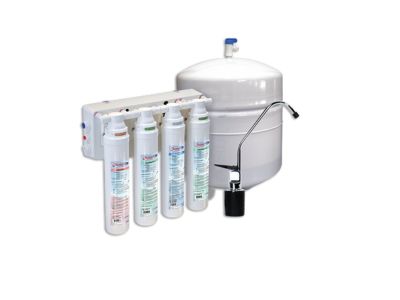
3. Ultrafiltration Filters:
Ultrafiltration (UF) filters are similar to RO filters. They remove impurities with the help of a special membrane. The only difference is that UF filters use smaller pores which can remove bacteria and viruses. UF filters are also smaller and easier to install compared to RO filters.
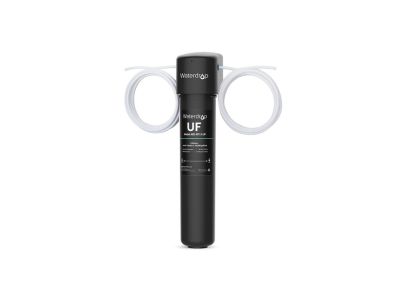
4. Ion Exchange Filters:
Ion Exchange (IE) filters work by removing minerals such as Calcium and Magnesium from your water, which can cause hard water buildup in your pipes. IE filters replace these minerals with Sodium ions, which can be harmful to those on low sodium diets. For this reason, IE filters may not be suitable for everyone.
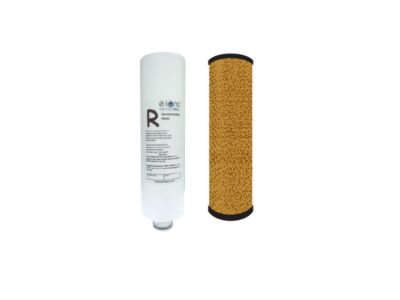
5. Ceramic Filters:
Ceramic filters are another type of filter you can use in your refrigerator. These filters work by removing impurities through ceramic pores. They are generally longer lasting and can be used for up to 12 months. However, they may not be as efficient in removing impurities as other filters.
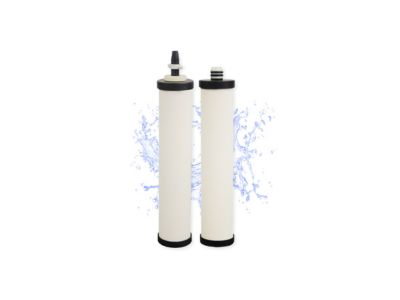
6. Sediment Filters:
Sediment filters are designed to remove dirt, sand, and other particles from the water. These filters are often used as pre-filters to protect other types of filters from clogging. Sediment filters are relatively cheap and can increase the lifespan of other filters.
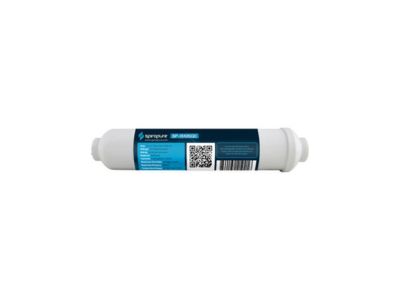
7. UV Filters:
UV filters use ultraviolet light to kill bacteria, viruses, and other pathogens. They are ideal for locations with a high risk of waterborne diseases and can produce water that is safe to drink. UV filters are often used alongside other filters, such as carbon filters, to provide additional protection.
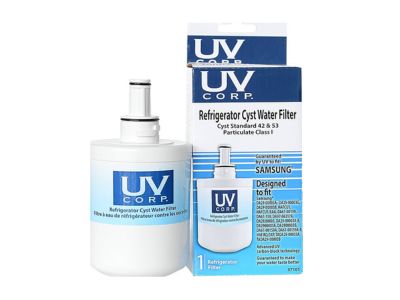
Conclusion:
In summary, changing your refrigerator water filter on a regular basis is important for maintaining good water quality and your appliance’s efficiency. Be sure to keep an eye out for signs of water deterioration and consult your user manual for the manufacturer’s recommended replacement time frame.You will save time and money in the long run if you do so.Stay hydrated and healthy by changing your refrigerator water filter regularly.
FAQs:
A: The general rule of thumb is to replace your refrigerator water filter every six months or when you notice an odor or taste in the water.
A: Refrigerator water filters are available online or in stores where major appliances are sold. Some appliance manufacturers also offer factory-direct filters for their own make and models, as well as many local hardware stores that carry a selection of refrigerator water filters compatible with a variety of brands.
A: When selecting the right refrigerator water filter, it is important to be mindful of the cost and size requirements of your fridge. This will ensure that you get the most out of your filter and get the best performance from your appliance.

